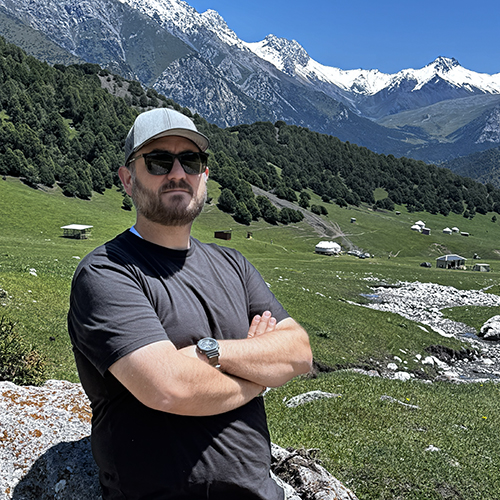Have you ever read a book steeped in science and wished you could discuss it with an expert in the field? Now you can, thanks to the Biology Book Club.
The club was started last year by Toby Bradshaw, professor of biology, and Kristy Brady, communications, advancement, and outreach coordinator for the Department of Biology. The idea is simple: they select a book on a timely science-related issue and invite a professor with related expertise to lead a series of discussions about it. Next on the schedule is Climate Change: Picturing the Science by Gavin Schmidt, which will be discussed in five evening meetings beginning January 6.
Brady traces the book club idea back to 2007, when she received a telephone call from a woman with an unusual request. The woman’s husband was reading Charles Darwin’s seminal work, On the Origin of Species, and was bursting with questions. For his birthday, she wanted to schedule a meeting for him with an evolutionary biologist. Brady immediately thought of Bradshaw, who was pleased to help.

After that experience, Bradshaw decided that he’d like to do something similar on a broader scale. Together he and Brady planned Evolution in the Evening, a ten-week program on evolution, intended for a general audience. “It started with a general lecture and then Toby let the group direct what topics to discuss,” says Brady. “People loved it.”
Though successful, the program was labor intensive. Brady and Bradshaw decided to refine the idea, aiming for an outreach offering that would still engage the public yet be sustainable. Brady, who had recently joined a book club, thought that building a program around timely books might be the way to go.
The Biology Book Club met for the first time in spring 2009. “Toby picked five possible books for the group,” says Brady. “From that list, I chose the one I thought would be the most accessible, timely, and engaging.” Brady decided on The Strongest Boy in the World: How Genetic Information is Reshaping Our Lives. The group met for five weeks—one week for each section of the book—and discussed topics ranging from genetic engineering to gene therapy. Participants included both academics and non-scientists with a general interest in the subject.
“Overwhelmingly, everyone who attended asked that we not wait until next spring to offer the book club again,” says Brady. They’ll be thrilled to know that she has scheduled another book—and faculty facilitator—for winter quarter.
Josh Tewksbury, assistant professor of biology, will lead the winter quarter book club, with climate change as the focus. “Josh is really good at explaining things to a general audience,” says Brady, “and like Toby, he believes that it’s our job to communicate science to the public.”
As with the first book, Brady selected this one—Climate Change: Picturing the Science—based on its accessibility and relevance. Tewksbury also read it and gave it his blessing. The book combines chapters by various experts with photographs depicting climate change. “It’s a beautiful book,” says Brady, “and the photos really help you see climate change. The book looks hefty, but that’s because of all the photos. People shouldn’t be daunted by it.”

The Biology Book Club is free, but participants must purchase the book themselves. (Brady has asked the University Book Store to stock extra copies.) No time to read the book before January 6? Not to worry. “People don’t have to read it ahead of time,” says Brady. “They can read it as we go along.”
Those who can’t attend the Biology Book Club this time around are likely to have another chance. Brady and Bradshaw hope to offer the club on a quarterly basis—minus summer quarter--in the future. “I don’t think three times a year is too often,” says Brady. “It’s just finding faculty who can make the commitment. It’s a great opportunity for people to talk about science-related books with someone who is thinking about, and understands, the science.”
More Stories

AI in the Classroom? For Faculty, It's Complicated
Three College of Arts & Sciences professors discuss the impact of AI on their teaching and on student learning. The consensus? It’s complicated.

A Sports Obsession Inspires a Career
Thuc Nhi Nguyen got her start the UW Daily. Now she's a sports reporter for Los Angeles Times, writing about the Lakers and the Olympics.

Through Soil Science, an Adventure in Kyrgyzstan
Chemistry PhD alum Jonathan Cox spent most of 2025 in Kyrgyzstan, helping farmers improve their soil—and their crops—through soil testing.